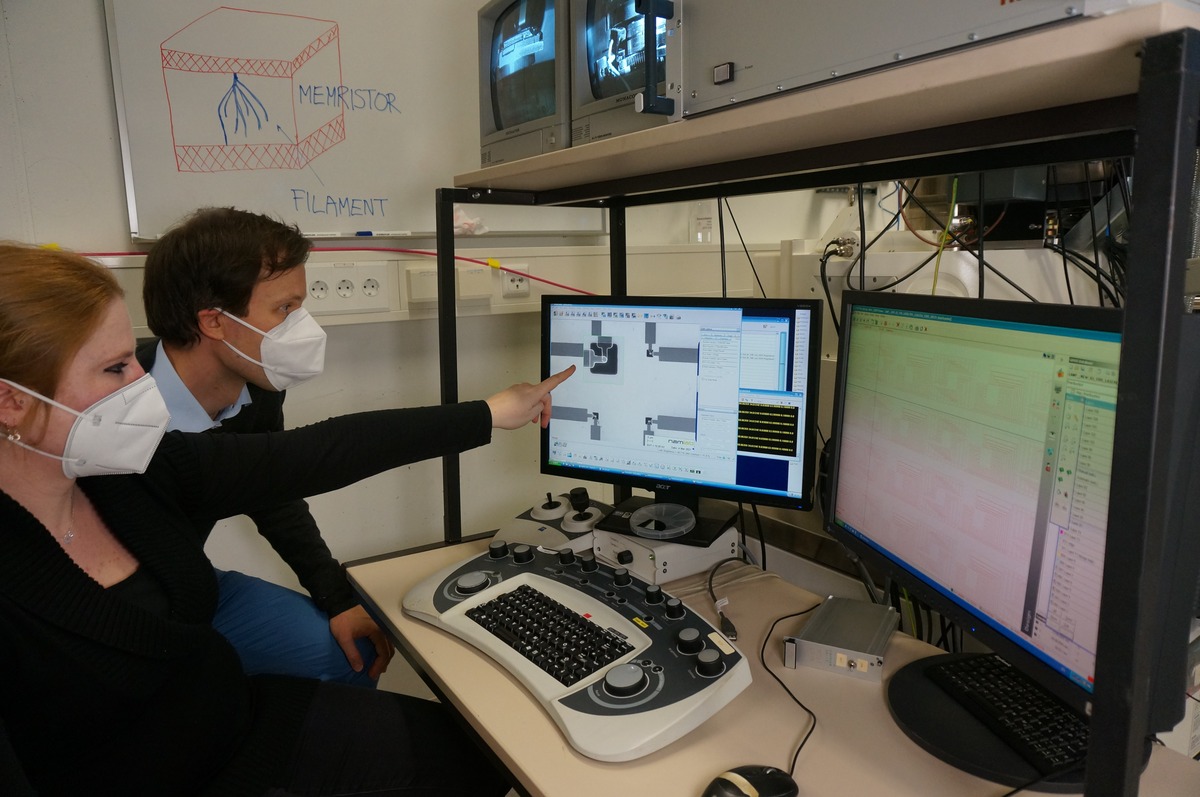On 5 March 2021, the virtual kick-off workshop of the priority programme of the German Research Foundation (DFG) MemrisTec took place. Almost 70 scientists from Germany as well as guests from England and the United States came together to explore the many possible applications of memristors.
Memristors are nanoelectric components capable of storage and computation. They are so small that many of them can be placed very densely on a chip. In addition, memristors learn and process information. Because of these properties, they enable a completely new and much more powerful type of electronic circuit than we know today. They thus open up a multitude of applications that have not yet been sufficiently investigated. This is precisely the task of the DFG priority programme “MemrisTec: Memristive Devices for Intelligent Technical Systems”. Under the direction of Prof. Dr. Ronald Tetzlaff from the Chair of Fundamentals of Electrical Engineering, the interdisciplinary, international research team is striving to fathom the scientific fundamentals of the memristor in order to make their industrial application possible.
The cooperation within the framework of MemrisTec now got underway with the virtual workshop conducted in English. After words of welcome from the MemrisTec coordinators, Prof. Tetzlaff and Christian Bruchatz, and the representative of the DFG, Dr. Damian Dudek, the keynote speaker Prof. Dr. Themis Prodromakis from the University of Southampton presented the variety of applications of memristors. Thanks to numerous questions, his presentation “Emerging Applications of Memristor Technologies: From Bio-Interfaces To Radiation-Hard Electronics” formed the introduction to the discussion and the subsequent lectures. Subsequent presentations provided comprehensive insights into selected potential application areas of memristors. A special focus was on the highly efficient, robust and faster memory technologies that can be developed thanks to memristors and the use of memristors in neuromorphic electronic systems. With memristors, the challenges of the Internet of Things could be better mastered and biologically-inspired artificial brains (computers that can “think” and “learn”) could be developed. During the workshop, these possible applications were presented in detail.
The virtual format also offered the opportunity for dialogue and the development of ideas. In a digital World Café, participants were able to move between six parallel tables and jointly develop concepts for shaping interdisciplinary and cross-location cooperation over the next six years. These also include the promotion of young scientists, equal opportunities and strengthened international cooperation.
The workshop culminated with two more keynote lectures, which took place at the end of the day due to the time difference with the United States. Prof. R. Stanley Williams from Texas A&M University explained that it is impossible to measure isolated locally active memristors directly and that many previous measurements carried out worldwide would be subject to interference. Furthermore, a fundamental theory for the thermal behaviour of memristors is still lacking, since understanding the thermal circuit is as crucial to its description as that of the electrical circuit.
The evening ended with Prof. Dr. Qiangfei Xia from the University of Massachusetts at Amsherst, who presented, among other things, the expected resource savings in matrix multiplications in neural networks using memristors.
The event laid the foundation for further cooperation.
Article from Anna Fejdasz

